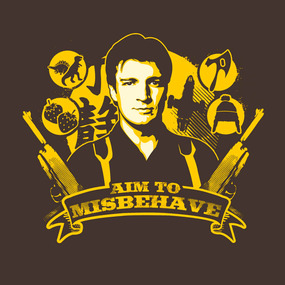Nearly a century ago, the immortal Albert Jay Nock decanted one of the most potent condemnations of prohibition ever committed to print. Nock described the prohibitionist impulse as “simply unworthy of a free people, and, being unworthy [is] soon found intolerable.” He rebuked prohibitionists for their “hatreds, fanaticisms, inaccessibility to ideas … inflamed and cancerous interest in the personal conduct of others …. hysterical disregard of personal rights [and their] pure faith in force….” Those traits, he concluded, “characterize and animate a civilization that the general experience of mankind at once condemns as impossible, and as hateful as it is impossible.”
The prohibitionist is an instinctive authoritarian and self-enraptured bully determined to cleanse the world of conduct he considers offensive, no matter the cost. At antipodes is the bootlegger, an entrepreneur in the original sense of the word — someone who takes risks in order to provide goods to willing customers in mutually beneficial transactions.
During the past two weeks, while examining the affairs of the prohibitionist clique afflicting my beloved Treasure Valley, I re-read Memoirs of an Oregon Moonshiner, in which Ray Nelson described what it was like to be involved in the “illegal manufacture and delivery” of whiskey in Malheur County during the period of official derangement known as alcohol prohibition. While contemporary prohibitionists obsess about a different roster of proscribed substances, little else has changed.
Like countless others, Nelson — a World War I veteran and cowboy by training and inclination — got involved in the manufacture and “illegal delivery” of a controlled substance out of economic necessity. During a business trip to Vale in 1923, Nelson and his first partner were ratted out by an informant, the type of person “which Vale was accursed with,” and then arrested by “three old ex-barflies” who had been deputized by the Malheur County Sheriff’s Office.”
Nelson and his friend pleaded guilty to “possession of whiskey” in the hope that as first-time offenders they would receive leniency. Instead, the Justice of the Peace, who “looked at us with a hangman’s-gallows look on his mug,” sent them to jail for ninety days and imposed a $300 fine — a considerable sum at the time.
After it was made clear that the judge and his fellow parasites were interested only in the fine, and would commute the jail term if it were paid, Nelson and his colleague — in an entirely admirable display of contemptuous defiance — refused to pay the ransom and rejected offers by their friends to pay it on their behalf. Once he was set free, Nelson resumed his career, providing a high-quality product for willing customers at a reasonable price. Nelson would eventually serve time in prison after the Malheur County Sheriff’s Office and district attorney struck a deal with an ex-convict to testify against the bootlegger.
Manufacturing and selling alcohol in defiance of what the government pretended was the “law” was never a crime. Attempting to suppress that activity created an environment in which actual crime metastasized. While honest and honorable businessmen who defied prohibition to make a modest living were hounded and prosecuted, “Crooked county and state officials were getting rich from it,” Nelson observed. The same was true of politically protected gangsters in major cities who, in collusion with bureaucrats and law enforcement officers, “branched out into other rackets such as extortion, kidnapping, and bank robbery.”
“I was never a criminal, so I never shall reform,” Nelson testified decades later, long after Prohibition ended. “Robbing, stealing, killing, swindling, and the like are something I never did believe in. I hate and despise anybody who goes in for anything like that and want to see them justly prosecuted. Those who bucked the prohibition law were the same stock of people who, back in Colonial days, comprised the Boston Tea Party … people who had nerve enough to contest a law that was a direct infringement on their rights.”
12:45 pm on June 28, 2014




